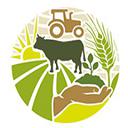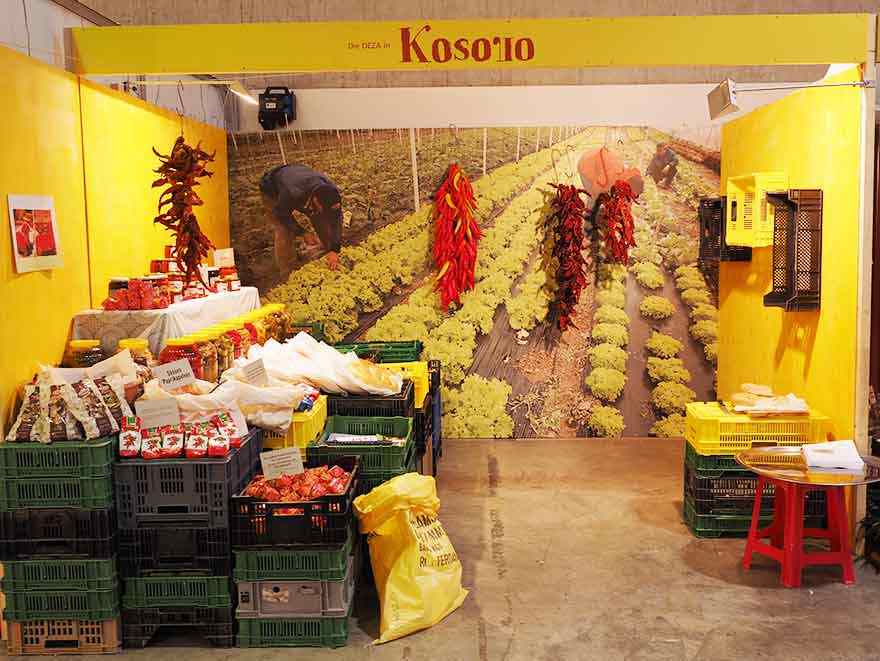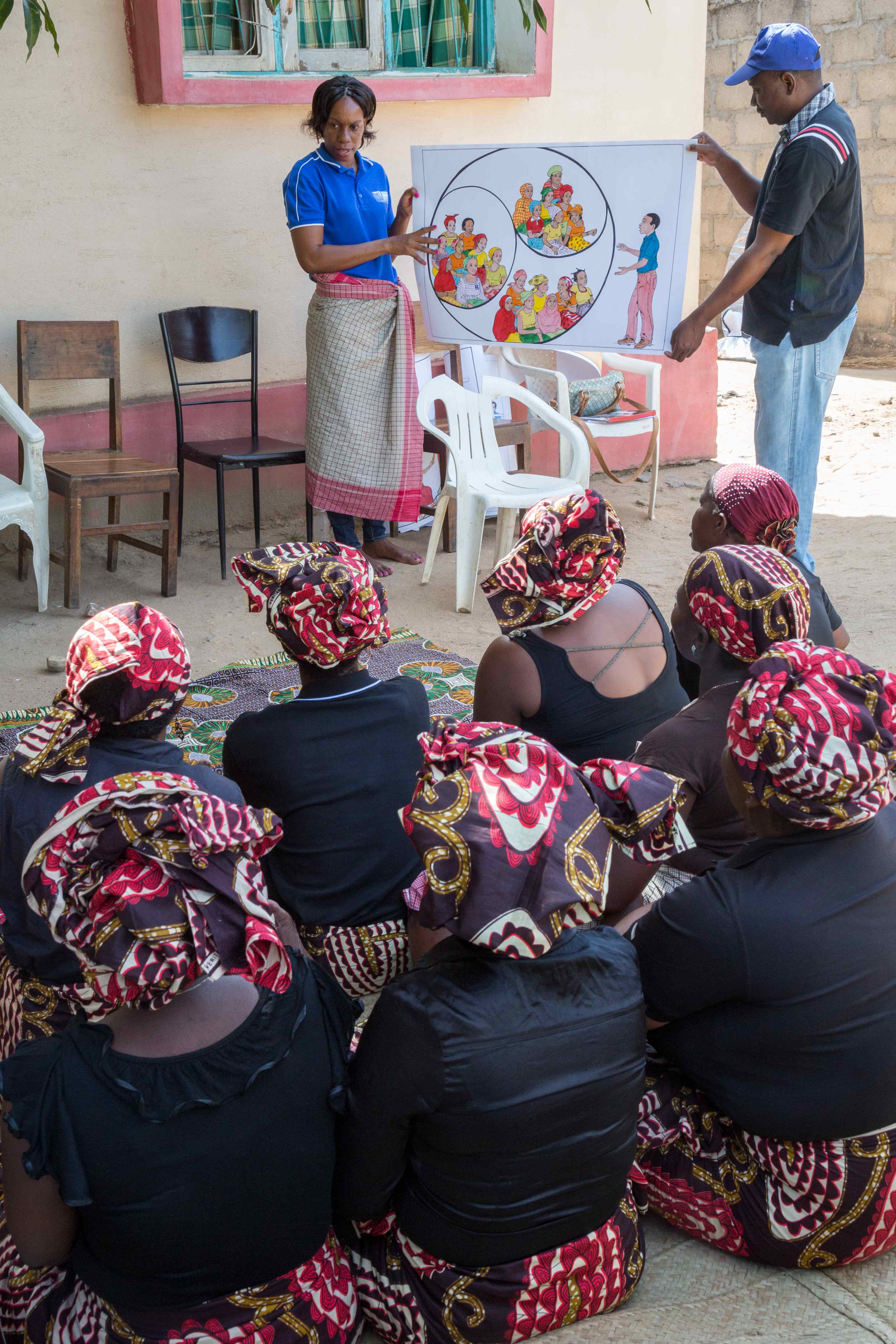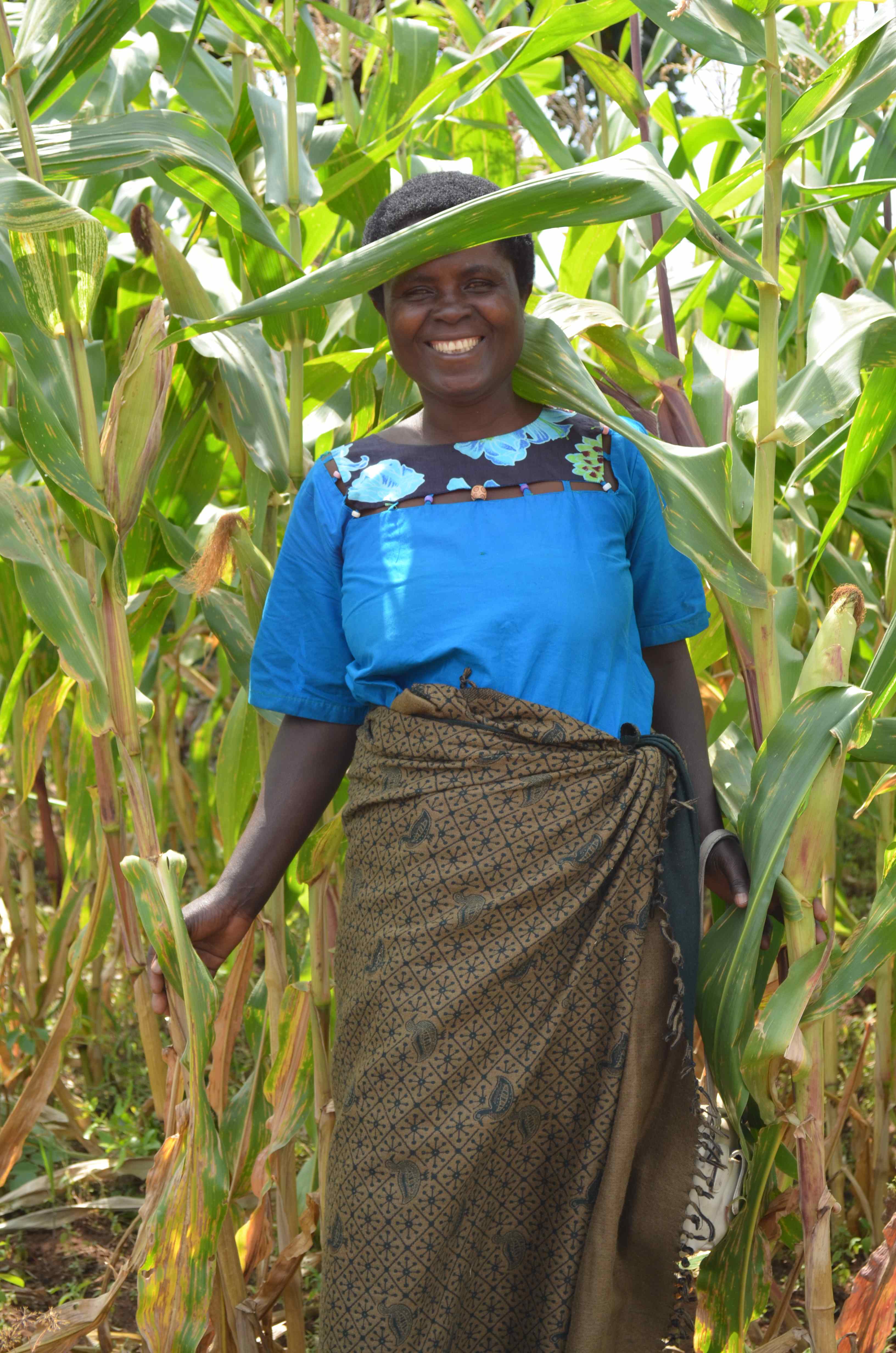Page Content 2015-12 eiNewsletter  joint Newsletter of the Networks e+i and A&FS joint Newsletter of the Networks e+i and A&FS 
Dear members of the e+i as well as the A&FS network, We are very happy to present you already with the 2nd edition of our joint newsletter and wish you good reading.
Peter Beez Felix Fellmann
Focal Point e+i Focal Point A+FS
e+i Reminder: Support by external experts
SDC e+i network members can use various experts up to one day of work (no bureaucracy, just inform the FP e+i) for thematic support such as commenting on documents like TORs, webinar on approaches and methodologies, brief literature overview on a certain topic, etc. If you need more time, ask ahead, maybe it is of general interest for the network:
Support PSD / FSD
Support VSD
Nay Myo ZwaNational Programme Officer- Employment and Skills Development (since 2013), Myanmar  What do you love about your work, what is special about it? Myanmar has an increasing demand for qualified personnel that is expected to accelerate even more in the near future: the upcoming ASEAN Economic Community (AEC) and the envisaged start of free move of skilled labour as per 2016 may provide more benefits for skilled workforce if they are better qualified. High quality Technical and Vocational Education and Training (TVET) that equips the economy with a skilled and competitive work force, will contribute to a sustainable growth of the economy in Myanmar. Which is/ are your favourite instrument(s)? Systemic support to TVET quality and standards setting, qualification and certification, with a focus to support the National Skills Standard Authority (NSSA). The NSSA was formed in 2007 to regulate, lead, establish competency standards and conduct assessments for workforce development in Myanmar. It is headed by the Ministry of Labour, Employment and Social Security (MOLES) and comprised of representatives of the various Ministries concerned with skills development as well as Non-Governmental Organizations. Its aim is to lay down competency standards and promote the systematic training and certification of skilled workers. Your message for your colleagues I am looking forward to working with you, to learning from your experience. In the meantime, I am also very happy to share our interesting experiences of our works in the TVET sector in Myanmar. Aida GareevaSenior Project Coordinator for CAMP Alatoo in Kyrgyzstan, SDC Bern  Aida, you are an expert in natural resource conflict management in Kyrgyzstan. What are the current challenges in your scope of work?CAMP Alatoo is working with natural resources management, mainly of water, pasture, arable land and forest on the local and watershed level. I have been Senior Project Coordinator in Kyrgyz PF CAMP Alatoo for more than 10 years now. The management issues include also conflict mitigation and prevention. My task is the coordination of projects aimed at rising communities’ awareness to analyze conflicts, to train local stakeholder to deal with conflicts, to support strategy development and conflict management plans and their practical implementation. CAMP Alatoo cooperates with government organizations to elaborate new regulations or to make additions to the current law in the frame of advocacy activities. We face the following challenges: It is difficult to get information on best practices: a) in the field of conflict mitigation on the local level from other countries; b) on management of conflicts over natural resources in/from other countries, in the best case with comparable conditions. On the other hand there are no professional mediation services in Central Asia. Which are the small and big things that keep you running in your job? What motivates you?- To link conflict management strategies and sustainable natural resources management - To enable local communities to manage conflicts on their own - To elaborate efficient approaches and tools for practical conflict management - And consequently support the mitigation of conflicts in the region. As you just recently joined the network: what are your expectations towards the network?I hope to improve my work also through the exchange of experiences among the network members and to receive useful information. Also, I’d like to share our approaches hoping that they will be interesting for the other experts. Especially our experiences in the field of translocal conflicts (over pastures) could be of use for others. We would like to learn more on (international) transboundary conflicts and their mitigation.  30 Nov 2015 A Monitoring and Result Measurement (MRM) and DCED Standard training was organised for the WBA Swiss Cooperation Offices (SCO) from 25 – 28 August at Lake Ohrid in Macedonia. This was considered highly important since most of the private sector development project embrace a MRM system along the DCED Standard that requires to some extent a different steering by the SCO. The training was delivered by Hans Posthumus who is well known in this field and is currently also working for e+i on a good practice paper for SDC on MRM for private sector development projects. >> more news will follow later  30 Nov 2015 Addis Ababa, Ethiopia, 30 September 2015 – The United Nations Development Programme (UNDP) and the Swiss Agency for Development and Cooperation (SDC) have signed a new agreement to bolster inclusive growth in Africa through private sector, inclusive business, and market development. The 3.7 million Swiss Francs contribution will support a three-year initiative “Accelerating Inclusive Growth and Sustainable Development in Africa” that seeks to create employment and livelihoods, particularly for women and young people, and support regional institutions and national governments in developing inclusive markets and businesses. The initiative builds on the work of UNDP’s African Facility for Inclusive Markets. >> more 27 Nov 2015  Every year in the city of St. Gallen the agricultural and nutrition fair "OLMA" is taking place. The fair was held from 8 – 18 October 2015 and attracted a large number of visitors. This year SDC created an interactive exhibition about food, food security and nutrition at the OLMA agricultural fair and Kosovo was part of it. SME’s from Kosovo who are supported by the PPSE project had the opportunity to present a wide range of their products. Read more >> 30 Nov 2015  SDC Mozambique private and financial sector domain aims at improving access to finance. Since 2012, SDC has supported an innovative private public partnership to create a rural green-fielding institution called Microbanco Fides Moçambique SA (MBFM) whose technical assistance is provided by Financial Systems Development Services (FIDES). In this context of the PPDP, Swiss Microfinance Holding (SMH) acted as the private sector investor. MBFM is a formally licensed micro bank under the prudential regulation and supervision of central bank. The partnership between SDC, FIDES and SMH was designed to leverage scarce public resources and to reach 15’000 poor clients that could not be targeted through a standard project. In addition to MBFM, and as part of the project, an Inclusive Finance and Insurance Academy (INFINA) was established to train young Mozambican to staff MBFM. SDC is represented by the COOF at MBFM board of Directors. >> more 27 Nov 2015  The SCBF is SDC’s major public-private development partnership with the Swiss financial sector to promote financial inclusion in the South. Activities under management since inception in 2011:  Product Up-scaling interventions: Approved interventions: 52 / Overall volume: CHF 10.75 mio / Approved SCBF contributions: CHF 6.53 mio / Self-contribution by partner financial intermediaries and third parties: CHF 4.22 mio (39%) Product Up-scaling interventions: Approved interventions: 52 / Overall volume: CHF 10.75 mio / Approved SCBF contributions: CHF 6.53 mio / Self-contribution by partner financial intermediaries and third parties: CHF 4.22 mio (39%)
Feasibility Studies: Approved studies: 15 / Overall volume: CHF 2.17 mio / Approved SCBF contributions: CHF 1.42 mio / Self-contribution by partner financial intermediaries and third parties: CHF 0.75 mio (avg 31%) Financial Education Campaigns: Approved campaigns: 8 / Overall volume: CHF 1.75 mio / Approved SCBF contributions: CHF 0.97 mio (avg 40%) Highlights since the last newsletter
Approval of one product up-scaling intervention in Haiti and feasibility studies in Myanmar and Bangladesh. There are also several projects in the pipeline.
Completion of six product up-scaling interventions including one in Egypt, Morocco, Nepal, Senegal, Haiti and Peru.
 01 Dec 2015 Niger knows an apprenticeship system with practical learning at the
workplace. In November, a ministerial delegation visited Switzerland in order
to learn about the roles and shared responsibilities of the private sector, the
cantonal and state authorities in Switzerland in the dual vocational education
system. >>more  01 Dec 2015 Call for a backstopping to support the Education network and the
monitoring of SDC's contribution to the Global Partnership for Education (GPE). see simap platform for details (search for "Education focal point",
notice n°889801)  01 Dec 2015 Together with ILO, UDNP and World Bank, SDC has organized and chaired a
regional conference on Jobs and Employment. The e+i network participated in
this event and could present relevant and much welcomed results on private
sector cooperation and labour market orientation based on discussions held
within the network. for: Insights and results  01 Dec 2015 From 19 to 22 October, the Croatian minister Vedran Mornan visited
Switzerland in order to gain a better understanding about the dual vocational
education and training system, and especially the role of the private sector
and private businesses. >> more  01 Dec 2015  01 Dec 2015 Mauro Dell'Ambrogio, State Secretary for Education, Research andInnovation (SERI) paid working visits to Bulgaria and Romania to discuss topicson Vocational Education and Training and scientific collaboration. In Sofia, heopened together with the Bulgarian Minister of Education and Science the “TodorTanev”, the first dual vocational training course, which has been developed incollaboration with Swiss partners. >> More information in German and French  01 Dec 2015 The new project on vocational skills development inAlbania, the “Skills for Job Project” has been awarded to a Swiss-Albanianconsortium including Swisscontact (Switzerland, Lead) and CommunicationProgress (Albania). The project will facilitate the development of quality VSDoffers by including dual approaches and new ways of learning, using moderntechnologies like smart phones and social media and applying a combination ofblended (individualised) learning and work-based learning approaches. Thepreparation phase is running since 1st of October 2015.  30 Nov 2015 The Swiss Cooperation Albania project portfolio in the field of job creation has grown and consists now of four projects financed by SDC and SECO. To ensure coordination, information sharing, joint learning and potentially also to identify joint activities, a Coordination Platform on Job Creation was designed along the successful example in place in Kosovo. On 22 October the first Coordination Platform meeting took place to inform each other of the projects and to discuss the mechanism, objectives and frequency. >> more information on the projects
The new date and location of the BEAM Exchange International Conference 2016 has been confirmed. it will take place on 19-20 May 2016 in Lusaka, Zambia. It is set to be a landmark event in the calendar for market systems development practitioners. >> more ![]() This course will assist you to apply the Donor Committee for Enterprise
Development (DCED) Standard and monitoring and results measurement methods and
tolls in your organisation and PSD projects. >> more The third global seminar will offer different sessions which include plenaries and break-outs, with time for discussion between the expected 100 participants. >> more information and >>application form withfacilitators from Swisscontact and Helvetas Swiss Intercooperation. Thetraining will be in English. >> more ![]() This course will introduce program managers of implementing agencies to
the key principles, practices and tips that will enable them to lead effective
results measurement for learning, management and reporting. >> more A one-day course that offers a very intensive overview of microfinance, including a short introduction to microinsurance
>Read more Update: Read a summary of the event here. A regional SDC workshop will take place from 29 August to 2 September 2016 in Prishtina, Kosovo. It targets SDC staff and invitees from the Western Balkan Region and will be dealing with Vocational Skills Development. A detailed agenda is currently under development. Participation only upon invitation. Results will be shared within the network. The theme to be explored by this edition is «From Skills to Prosperity – Sharing
Elements of Success». Its focus lies on the international exchange
of successful principles within different VPET systems. Prominent speakers from
both Switzerland and abroad will take part in this congress, including top
political, economic, scientific figures responsible for decision-making on
vocational education and training matters. You find furhter information on the congress here. A regional SDC-workshop on vocational skills development (VSD) will take place in Colombia in February 2016. It will gather heads of SDC's VSD projects in Latin America and the Caribbean as well as the people responsible for this theme in Embassies/Cooperation Offices. The focus will be placed on school-to-work transitions and on coordination with the private sector. Part of the workshop will be held with SDC's gender regional network and will address the interplays between gender and VSD/employment issues. Participation only upon invitation. Results will be shared within the network. This years thematic workshop oft he GIZ competence centre education,
vocational training and labour market tackles those who do train people. Results might be shared. Find the programme here and more
information is provided by julia.becker@giz.de FoBBIZ annual conference. This event is over, but you might want to check it out anyway. >>more The training is organized and implemented by the ILO International Traininc Centre in
Turin. This course is over, but will be repeated later, so you might want to check out the site anyway. >>more  07 Dec 2015 Why do watersheds matter when it comes to poor people’s livelihoods, their access to water or their protection from disasters and climate change? People living in watersheds know each other, they know their environment and their income depends on the watersheds. 50 development professionals from Latin America and the Caribbean, and from SDC Head Office, comprising five thematic knowledge networks, met for one week in Nicaragua to generate evidence on successful watershed management interventions. Read the 10 key messages at the beginning of the report! They will make a difference in your next project design. (English) >> Síntesis temàtica (Español)
 07 Dec 2015 Why do watersheds matter when it comes to poor people’s livelihoods, their access to water or their protection from disasters and climate change? People living in watersheds know each other, they know their environment and their income depends on the watersheds. 50 development professionals from Latin America and the Caribbean, and from SDC Head Office, comprising five thematic knowledge networks, met for one week in Nicaragua to generate evidence on successful watershed management interventions. Read the 10 key messages at the beginning of the report! They will make a difference in your next project design. (English) >> Síntesis temàtica (Español)
 07 Dec 2015 Why do watersheds matter when it comes to poor people’s livelihoods, their access to water or their protection from disasters and climate change? People living in watersheds know each other, they know their environment and their income depends on the watersheds. 50 development professionals from Latin America and the Caribbean, and from SDC Head Office, comprising five thematic knowledge networks, met for one week in Nicaragua to generate evidence on successful watershed management interventions. Read the 10 key messages at the beginning of the report! They will make a difference in your next project design. (English) >> Síntesis temàtica (Español)
Hystra [7 MB] The reports shows how pioneer companies and organizations have sustainably increased the income and livelihoods of millions of smallholder farmers around the world, by sourcing produce from them or selling products to them. Market Development Facility (MDF) [3.7 MB] This case shows how the Market Development Facility (MDF) tackles the challenges of defining expected systemic changes in the sectors it targets, outlining pathways towards a high degree of systemic change and using those pathways as the basis for monitoring progress towards the defined changes. Mihaela Balan, Ben Fowel [1.1 MB] This case describes how GEMS3 has assessed the results of interventions to improve tax harmonisation, and how they assessed their impact at target enterprise level. DCED [1.2 MB] This case study describes the experience of the Market Development Facility (MDF) in developing a learning culture and focuses on the attitudes and behaviors at the core of MDF’s organizational culture.
Alexandra Miehlbradt for DCED Standard, September 2015. Meyer, Julia and Krauss, Annette [620 kB] Center for Microfinance, University of Zurich:
Working Paper Series No. 03, 2015 Martinez, Catalina and Annette Krauss -Center for Microfinance [7.5 MB] Center for Microfinance, University of Zurich:
Working Paper Series No. 02, 2015 Julia Meyer-Center for Microfinance [372 kB] Center for Microfinance, University of Zuerich
Working Paper Series, No. 01-2015
March 4 2015 Martinez, Catalina-University of Zuerich [709 kB] Working Paper by Center for Microfinance (University of Zurich) Zurich [565 kB] This case study is based on the results and lessons from Zurich Insurance Group's multi-regional publicprivate
development partnership with SDC between 2007 and 2011. It forms part of a series of thematic
case studies of SDC’s Employment + Income Network. Deena M. Burjorjee and Barbara Scola [538 kB] These guidelines are intended to provide guidance for funders promoting financial inclusion or pro-poor financial services markets as part of their development mandate. The target audience includes multilateral and bilateral donors, development finance institutions, and foundations.
CGAP (2015) ILO [102 kB] The Centre of Excellence for the Bangladesh Apparel Industries (CEBAI) is a replicable model of an industry-driven training and support service that aims to meet the sector’s labour force needs. The initiative seeks (as part of a global ILO-H&M partnership) to increase both the employability and wages of the working poor. ILO [1004 kB] ILO (Asia Region).
These Regional Model Competency Standards (RMCS) on core competencies were developed as a basis to integrate with specific skills needed at the workplace, so that training and assessment resources can be developed and individuals tested against the standards. They include a wide range of core competencies, including the “green” or environmental competencies. [1.7 MB] Volume II: national and regional cases, CEDEFOP.
How far is the world progressing towards comprehensive qualifications frameworks? The inventory showcases 86 countries and examines how learning outcomes of all types of learning - formal, non-formal and informal - are being integrated into regional and national qualifications frameworks. European Center for Vocational Training [3 MB] CEDEFOP - Supporting internal quality management and quality culture. This handbook focuses on the importance of internal quality management specifically for institutions involved in vocational education and training (VET).It is meant to guide VET providers through a quality journey, based on the PDCA (plan-do-check-act/review) cycle, which underlies any quality management system (QMS). |
